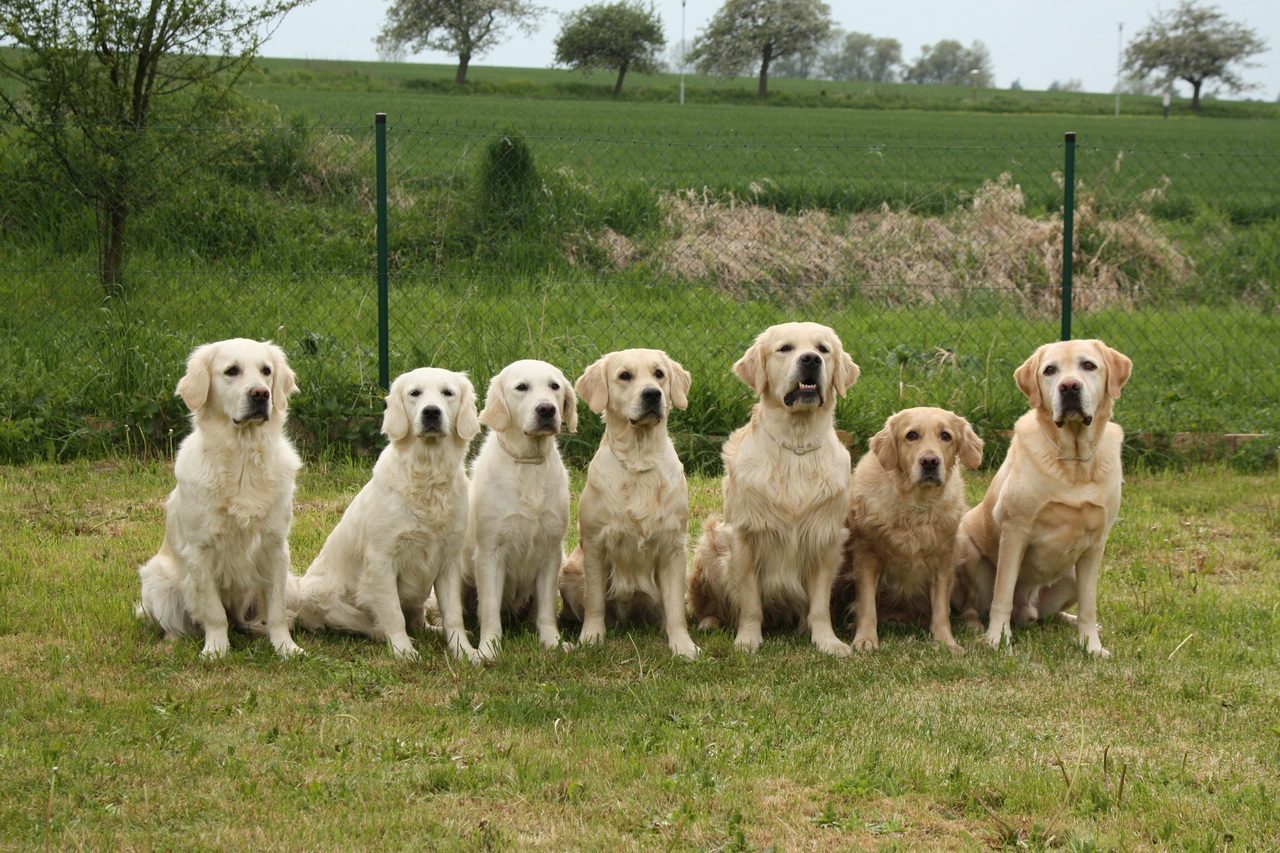Written by Dr Elle Burton-Bradley, Veterinarian, The Village Vet
If you are still deciding what animal you would like to add to your family, refer to our blog on Choosing a New Pet.
If you Google search “what dog breed should I get?” you’ll be met with a series of quizzes that help to narrow down the list of breeds. These quizzes are great to get an idea of breeds that may be suitable, but your search shouldn’t end there. Read through Dr Burton-Bradley’s blog on Choosing the Right Dog Breed.
Choosing a new dog isn’t (and shouldn’t be) that simple. Picking a breed that suits your lifestyle and budget is crucial, rather than choosing one based on looks. The breeds that we know today come from long lines of selective breeding for specific purposes, some more specialised than others. When selecting a breed, ask yourself “what was this breed designed for?”. This simple question will give you an understanding of the temperament and requirements to find the perfect fit for your family. And remember, owning a dog is a 15-year commitment!
Breed groups
- Toys – Chihuahua, Yorkshire terrier, toy poodle, Italian greyhound, Maltese terrier.
- Terriers – Jack Russell terrier, Fox terrier, Staffy, Schnauzer.
- Sporting – Golden retriever, Labrador, Cocker spaniel, Springer spaniel, German shorthaired pointer.
- Herding – Border collie, Belgian and German shepherd, Australian cattle dog (blue heeler), Kelpie, Corgi.
- Hounds – Beagle, Dachshund, Greyhound.
- Working breeds – Alaskan Malamute, Boxer, Samoyed, Husky.
- Non-sporting – Boston terrier, Bichon Frise, English and French bulldog, Poodle.
Size
- Toy <5kg
- Small 5-10kg
- Medium 10-20kg
- Large 25-40kg
- Giant >40kg
Temperament
- How are they with people, children and other pets?
- Breeds selected for guarding or working (e.g. Border collies, Australian cattle dogs, Dachshunds) may be harder to socialise with other dogs and people.
- Are they independent or dependent on human company?
- Separation anxiety is an important welfare consideration, and is more common in certain breeds.
- Are they stubborn or easily trained?
- Dachshunds and Jack Russell terriers may be small but are stubborn and can be difficult to train, whereas Cavalier King Charles spaniels and Poodles are easily trained and obedient.
- Are they intelligent requiring plenty of mental and environmental stimulation?
- This doesn’t JUST mean a 20 minute walk daily, some require jobs or additional training like agility or flyball.
- Are they reactive to other dogs, people and noises?
- Bored and under stimulated dogs can bark throughout the day or every time someone walks past your fence.
Activity levels
- Low activity: Bassett hounds and Italian greyhounds don’t require much physical activity.
- Moderate activity: breeds that require moderate daily exercise.
- High activity: breeds with high energy demands that need more than a daily walk or run (e.g. Jack Russell terrier, Border collie and sporting dogs (Vizsla, German shorthaired pointer)).
Mental stimulation
- Intelligent breeds (for example working or sporting dogs) love to have a “job”, this is what their ancestors have been selected for.
- A 30 minute walk and a run down at the dog park is great for physical health, but these breeds require more complex stimulation for their mental health.
- If their mental (and physical) needs are not met, you’ll potentially be faced with destruction, barking, lead pulling and excitability that isn’t easily controlled.
- These breeds are suited to experienced owners and would thrive learning flyball and agility (e.g. Border collie, Vizsla, German shorthaired pointer).
Health issues
- Some breeds inherently have fewer health issues than others.
- Do they chew and eat things they shouldn’t like Labradors and Golden retrievers?
- This could be an indication you may be up for some afterhours visits if your dog eats the kid’s sport socks or rocks (yes, some dogs eat rocks).
- Breed-specific pet insurance premiums can give an indication on the expectation of health issues for your dog.
- We recommend researching pet insurance to find the right insurance plan for you and your pet.
- Finding a reputable breeder is crucial.
- Responsible breeders aim to reduce health issues in their litters through careful pair selection, high quality care and good environmental hygiene.
- Pups are highly susceptible to infections and parasites due to their small size and naïve immune systems.
- Where possible, visit the breeder first. If they are operating at a high standard they will welcome a visit.
Grooming
- Long-coated breeds generally require regular grooming to prevent knots or matts forming, and to maintain hygiene.
- Short-coated breeds generally don’t require grooming, only regular bathing.
Apartment or backyard living
- There are numerous breeds suited to apartment living, such as Chihuahuas, Cavoodles, Cavalier King Charles spaniels, and Greyhounds.
From Affenpinscher to Xoloitzcuintle, Akita to Weimaraner, looking through lists of dog breeds is overwhelming, and it can be hard to know where to start with all these weird and wonderful breeds. It is tempting to see beautiful dogs on social media and out in the world and want one for yourself. There are three categories of owner experience to consider; beginner, intermediate and experienced. Some breeds are highly intelligent and require significant mental stimulation and training, so are suited to more experienced dog owners.
Popular doesn’t mean easy. French Bulldogs are increasing in popularity due to their human-like faces and loving personalities. Flat-faced breeds (brachycephalics) like Frenchies, Pugs and English bulldogs bring with them significant health issues that may impact their quality of life and can have significant welfare issues. These breeds commonly have issues affecting multiple body systems including respiratory (difficulty breathing), musculoskeletal (spinal deformities, luxating patellas), skin (atopic dermatitis and allergies), gastrointestinal (food intolerances, inflammatory bowel disease), and ocular (corneal ulcers). While we love our Frenchie and Pug patients, we want you to be aware of the welfare and health considerations with these breeds. It is important to do your research when selecting a dog breed as many have special requirements that may impact your lifestyle.
So, when you have a shortlist of breeds, some suggestions are:
- Speak to your veterinarian about breeds and your lifestyle.
- We are always happy to discuss selecting a suitable dog breed with you! I am passionate about animal welfare and providing clients with the information they need to make the best decision for their family.
- Join breed-specific Facebook or social media groups.
- This can provide invaluable insight into what it is like owning that breed.
- Speak to owners you see with breeds you are interested in.
- Google search breeds and their health issues.
Every dog is an individual, and while we can make some assumptions based on their breed, each dog is unique and may not perfectly fit the breed mould. Whichever breed you pick, training is an essential part of dog ownership. Whether you have an easily trained and calm dog, or a highly excitable stubborn breed, consistent training is key. Put in the hard work early on and you’ll reap the benefits of a well-adjusted, obedient pet for years!
Puppies are HARD work! A lot of our clients say it is just like having a newborn, so owning a puppy isn’t for everyone. Rescues are a fantastic way to find a special dog of any age for your family. While rescues are restrictive on the breeds available, the dogs are just as special and many owners are happy to bypass the difficult puppy phase and adopt a middle aged or mature dog. If you are considering rescuing a puppy or dog, it is important to consider that some may have unknown history so may require some additional training. In most cases, rescued dogs are perfect additions to our lives!
Staff at The Village Vet have significant experience handling dogs with different temperaments, characters and health concerns. We are here to guide you through these choices.
Sources
- Dr Elle Burton-Bradley BAnVetBioSci (Hons I) DVM, Veterinarian, The Village Vet.
- Vets Choice Insurance, https://vetschoice.guildinsurance.com.au/dogs/dog-breeds
- AVMA Organisation, https://www.avma.org/resources/pet-owners/petcare/selecting-pet-dog
- Off The Leash, https://www.offtheleash.com.au/getting-a-dog/getting-a-puppy/how-to-choose-a-dog-breed/


